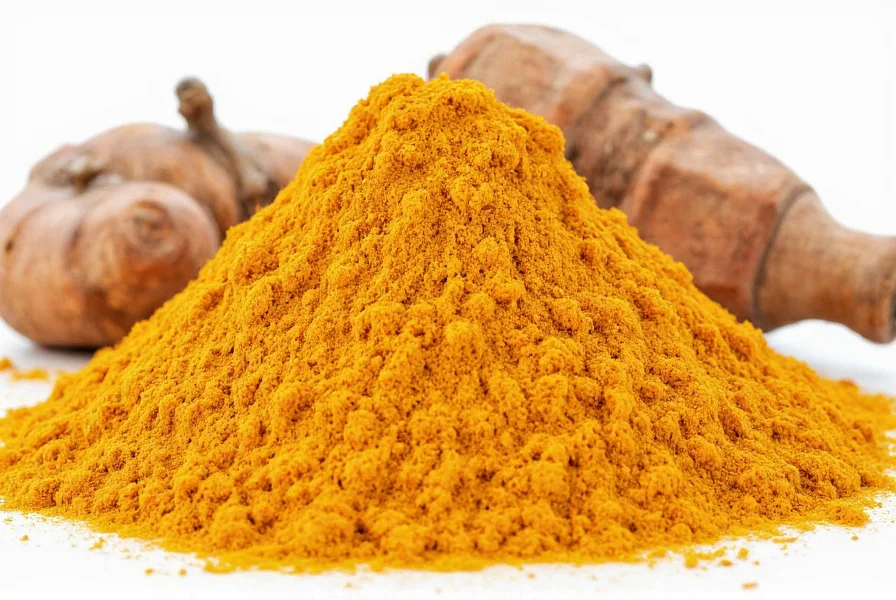Understanding the appropriate daily turmeric dosage is essential for maximizing health benefits while ensuring safety. Turmeric, particularly its active compound curcumin, has gained significant attention for its potential anti-inflammatory and antioxidant properties. However, determining how many mg of turmeric per day you should consume requires careful consideration of several factors.
Understanding Turmeric vs. Curcumin
Before discussing specific dosages, it's crucial to distinguish between turmeric and curcumin. Turmeric is the yellow spice derived from the Curcuma longa plant, while curcumin represents only about 2-8% of turmeric's composition and is responsible for most of its studied health benefits.
When evaluating daily turmeric dosage recommendations, you'll encounter two primary forms:
- Whole turmeric powder: Contains approximately 3% curcumin by weight
- Curcumin supplements: Typically standardized to contain 95% curcuminoids
This distinction significantly impacts the safe amount of turmeric per day you should consume to achieve therapeutic effects.
Evidence-Based Daily Turmeric Dosage Guidelines
Research provides valuable insights into effective turmeric consumption. Clinical trials have examined various dosages for different health purposes:
| Health Purpose | Recommended Daily Dosage | Curcumin Content | Duration in Studies |
|---|---|---|---|
| General wellness | 500-1,000 mg turmeric extract | 100-250 mg | Long-term |
| Anti-inflammatory support | 1,000-1,500 mg turmeric extract | 250-500 mg | 8-12 weeks |
| Osteoarthritis management | 1,000 mg curcumin extract | 95% standardized | 4-12 weeks |
| Antioxidant support | 500-1,000 mg turmeric extract | 100-250 mg | Long-term |
Factors Influencing Your Optimal Turmeric Intake
The how much turmeric should I take daily question doesn't have a one-size-fits-all answer. Several factors affect the appropriate dosage for you:
Formulation Matters
Curcumin has notoriously poor bioavailability. Many modern supplements include absorption enhancers:
- Piperine (black pepper extract): Increases absorption by up to 2,000%
- Liposomal formulations: Enhance delivery to tissues
- Phospholipid complexes: Improve bioavailability significantly
These formulations mean you may need less curcumin to achieve the same effects compared to standard extracts.
Individual Health Considerations
Your specific health status affects appropriate dosage:
- Body weight: Heavier individuals may require higher doses
- Health conditions: Certain conditions may warrant different dosing
- Medication interactions: Turmeric may interact with blood thinners and diabetes medications
- Pregnancy status: Higher doses are not recommended during pregnancy
Safety Considerations and Upper Limits
While turmeric is generally safe, understanding the maximum safe dosage of turmeric per day is critical. The European Food Safety Authority established an Acceptable Daily Intake (ADI) of 0-3 mg per kilogram of body weight for curcumin.
For a 70 kg (154 lb) adult, this translates to approximately 210 mg of curcumin daily. However, most clinical studies use higher doses (up to 8,000 mg of curcumin) for short periods without serious adverse effects.
Common side effects at higher doses include:
- Digestive discomfort (nausea, diarrhea)
- Increased risk of bleeding (especially with blood thinners)
- Potential gallbladder issues for those with gallstones
The safe daily limit for turmeric supplements appears to be around 8 grams of curcumin, though such high doses are not recommended for regular use without medical supervision.
Practical Tips for Daily Turmeric Consumption
To maximize benefits while following appropriate daily turmeric dosage guidelines:
- Take with black pepper: Just 20 mg of piperine significantly enhances absorption
- Consume with healthy fats: Curcumin is fat-soluble, improving absorption
- Divide doses: Taking smaller amounts throughout the day maintains consistent levels
- Consider timing: Taking with meals reduces potential digestive upset

When to Consult a Healthcare Professional
Before establishing your personal how many mg of turmeric per day regimen, consult with a healthcare provider if you:
- Take blood-thinning medications
- Have gallbladder issues
- Are scheduled for surgery within the next two weeks
- Are pregnant or breastfeeding
- Have a hormone-sensitive condition
Healthcare providers can help determine the appropriate daily turmeric intake for specific health conditions based on your individual health profile.
Conclusion: Finding Your Optimal Turmeric Dosage
Determining the right how many mg of turmeric per day for your needs requires balancing scientific evidence with individual factors. For general wellness, most adults benefit from 500-1,000 mg of a quality turmeric extract daily. Those seeking specific therapeutic effects may require higher doses under professional guidance.
Remember that consistency matters more than extremely high doses. Regular, moderate intake of a well-formulated turmeric product provides the most sustainable benefits. Always prioritize quality supplements with proven bioavailability and consult healthcare professionals when addressing specific health concerns.
What is the maximum safe daily dosage of turmeric?
For most adults, up to 2,000 mg of turmeric extract (providing 100-500 mg of curcumin) daily is considered safe for long-term use. Short-term studies have used up to 8,000 mg of curcumin without serious adverse effects, but such high doses aren't recommended for regular consumption without medical supervision.
Can I get enough curcumin from cooking with turmeric?
While culinary use of turmeric provides health benefits, achieving therapeutic curcumin levels typically requires supplementation. One teaspoon of turmeric powder contains only about 200 mg of curcumin. To reach the 500 mg of curcumin used in many studies, you would need to consume approximately 2.5 teaspoons of turmeric daily, which may cause digestive discomfort for some people.
How long does it take to notice benefits from daily turmeric consumption?
Most people report noticing subtle benefits within 4-8 weeks of consistent daily use. For inflammatory conditions, some studies show measurable improvements in 2-4 weeks. The timeline varies based on the condition being addressed, dosage, formulation quality, and individual metabolism.
Should I take turmeric on an empty stomach or with food?
Taking turmeric with food, particularly meals containing healthy fats, significantly improves absorption and reduces the risk of digestive upset. The presence of dietary fat helps your body absorb curcumin more effectively, while consuming it with food minimizes potential stomach irritation.
Is it safe to take turmeric every day long-term?
Yes, moderate daily turmeric consumption (500-1,500 mg of extract) appears safe for long-term use based on current research. Traditional use in Indian cuisine involves daily consumption without adverse effects. However, if you have specific health conditions or take medications, consult your healthcare provider before establishing a long-term regimen.











 浙公网安备
33010002000092号
浙公网安备
33010002000092号 浙B2-20120091-4
浙B2-20120091-4